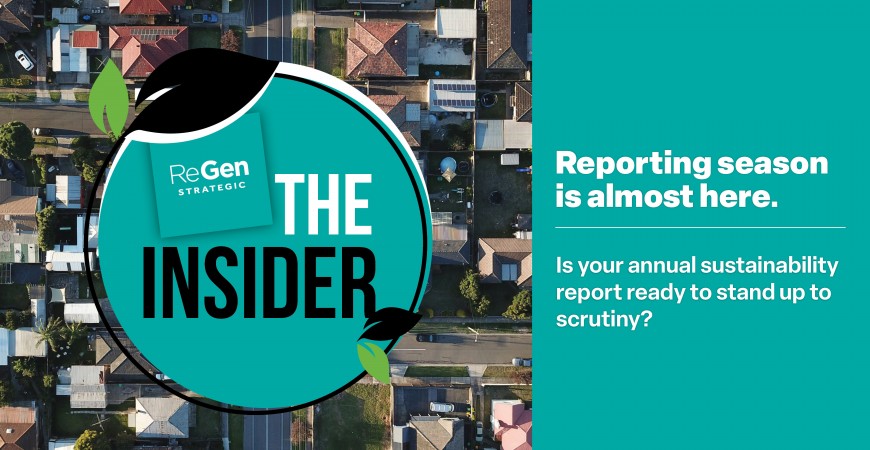As the financial year draws to a close, businesses across Australia are turning their attention to the preparation of annual reports. Increasingly, this process involves more than financial disclosures alone. The annual sustainability report is becoming an essential document for companies committed to transparency, accountability, and long-term value creation. It is not just a communication tool, but a strategic asset that demonstrates sustainability and environmental, social, and governance (ESG) performance to stakeholders ranging from investors and regulators to employees, customers and community. In today’s business environment, the quality and credibility of the report matters more than ever.
The pressure to demonstrate genuine sustainability performance is no longer limited to high profile sectors or large corporates. Across industries, organisations are expected to show how they are addressing climate change, reducing emissions, improving diversity and inclusion, managing waste, and ensuring supply chain integrity. A sustainability report is the natural vehicle for presenting this information, but its value depends entirely on its transparency, accuracy, and alignment with best-practice frameworks such as the Global Reporting Initiative (GRI), Sustainability Accounting Standards Board (SASB), Task Force on Climate-related Financial Disclosures (TCFD), or the Australian Accounting Standards Board (AASB).
However, many companies still treat sustainability reporting as a compliance exercise or an extension of marketing efforts. This often leads to vague or misleading statements, selective data presentation, and a lack of clear methodology which ultimately undermines stakeholder trust. Investors want data they can use to inform decisions, regulators are tightening requirements, and consumers and community members are more discerning than ever. A report that appears exaggerated, unclear, or inconsistent with other public disclosures can damage reputations rather than enhance them.
Credibility, therefore, must be at the centre of every sustainability report. This means clearly articulating goals, demonstrating progress with reliable data, explaining methodologies, and acknowledging challenges. It also means aligning the report with recognised standards and ensuring consistency year on year. Achieving this level of quality requires time, expertise, and a solid understanding of both sustainability principles and technical reporting requirements. This is why engaging technical experts is not just helpful, but essential.
ReGen Strategic brings a wealth of knowledge that internal teams may not always possess, especially in smaller organisations or those just beginning their sustainability journey. Our consultants are well versed in international and local reporting frameworks, materiality assessments, stakeholder engagement processes, and strategic communication. We help organisations interpret complex requirements and translate them into clear, actionable reporting strategies. This leads to reports that are technically robust and tailored to each client.
As we approach the end of the financial year, now is the ideal time for businesses to start preparing their annual sustainability reports in earnest. The reporting process can take several months, especially when it involves data gathering from multiple departments, stakeholder consultation, or third-party assurance. Starting early allows time for planning, internal alignment, and professional input. It also avoids the last-minute rush that can compromise the quality of the final report.
Sustainability reporting presents an opportunity to reflect on the progress made over the past year, identify areas for improvement, and set a clear direction for the future. A well-prepared report helps businesses build trust, attract investment, engage employees, and strengthen their reputation. It signals to the market that a company is serious about sustainability and has the systems in place to deliver real impact or at least build on its maturity over time.
For organisations looking to elevate their sustainability credentials, a credible and professional sustainability report is one of the most powerful tools available. But to realise its full potential, it should be developed with rigour, technical skill, and a commitment to transparency.
With the end of the financial year fast approaching, now is the time to act. Whether you are preparing your first sustainability report or seeking to enhance your current approach, expert guidance can make all the difference. Let this reporting season be a chance to demonstrate leadership, engage your stakeholders meaningfully, and set a strong foundation for the year ahead.
Contact Colin Davies for more information and to discuss your reporting needs.
 ReGen Strategic
ReGen Strategic